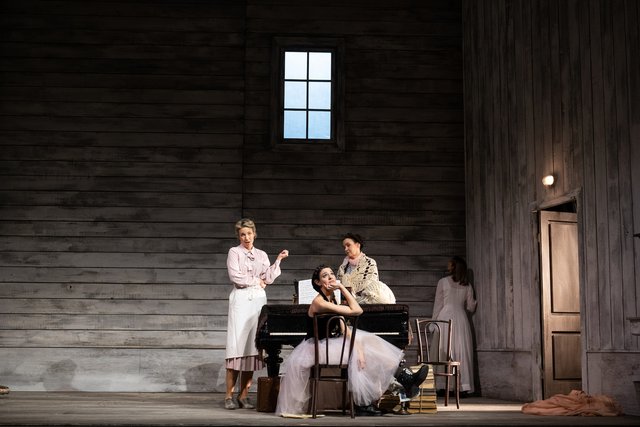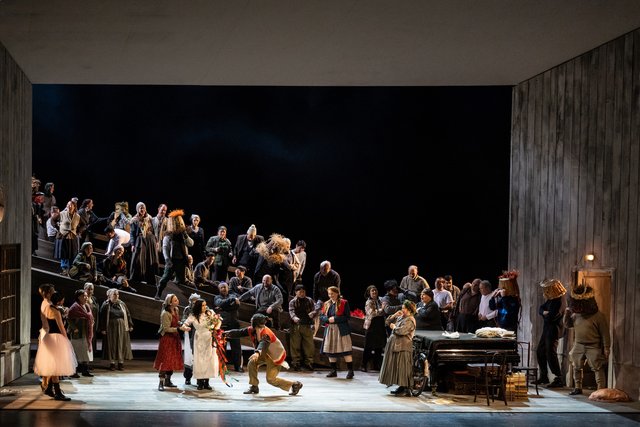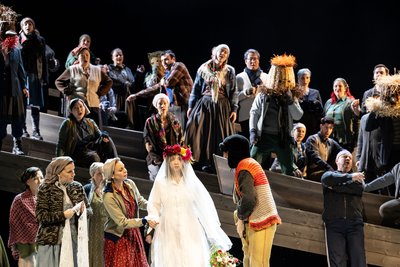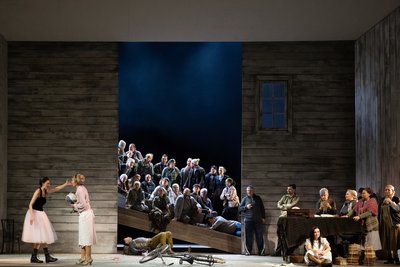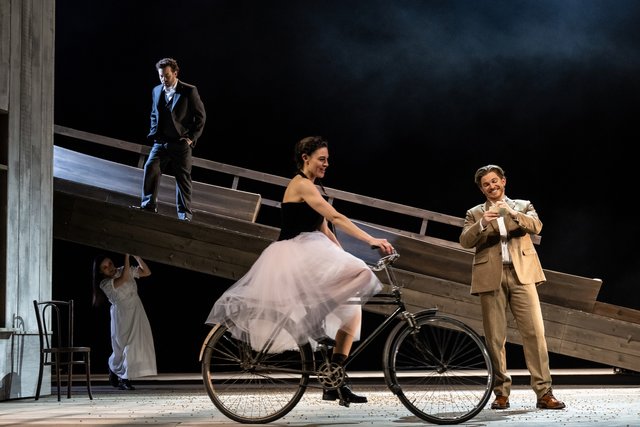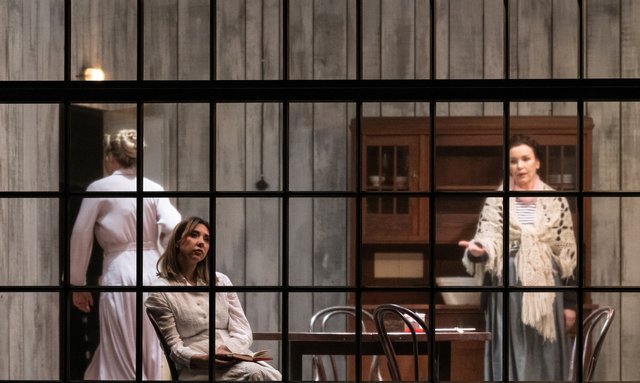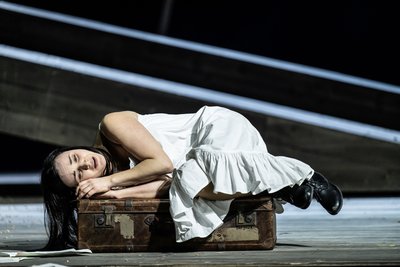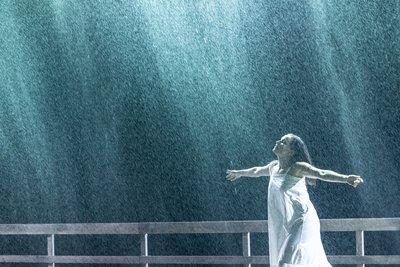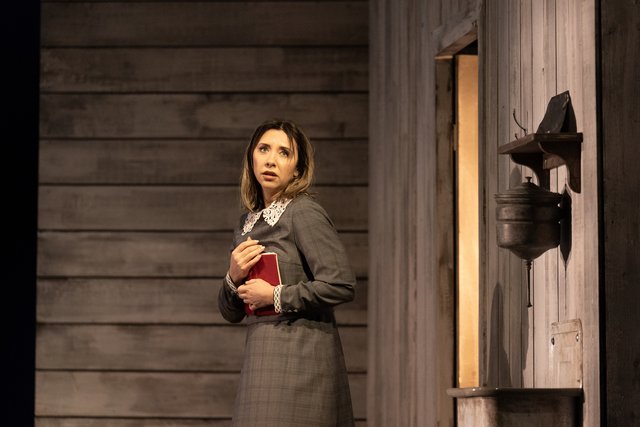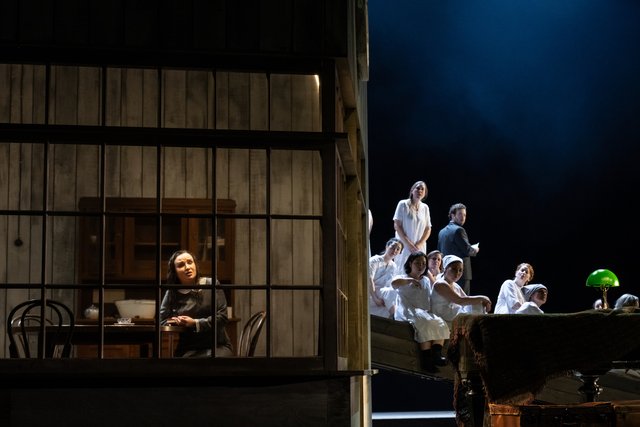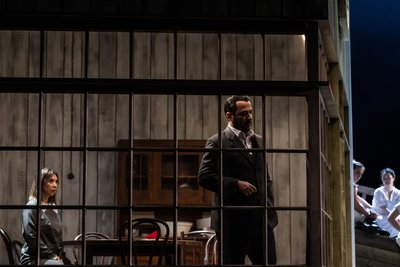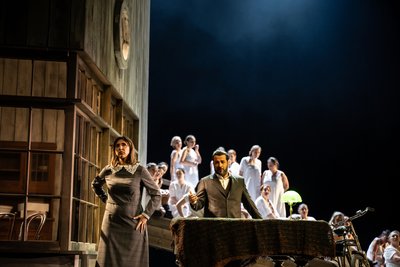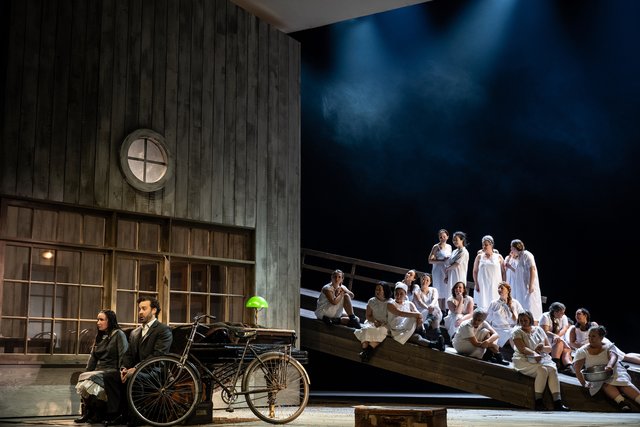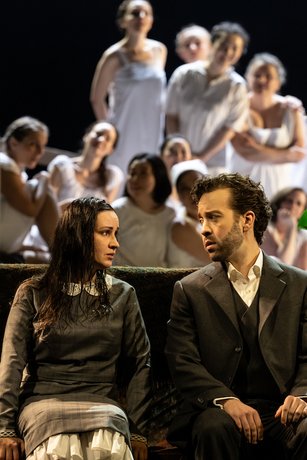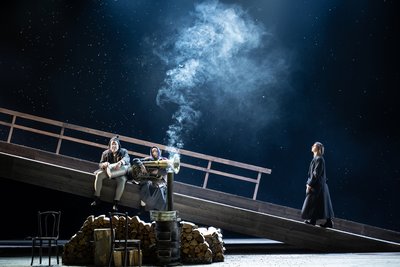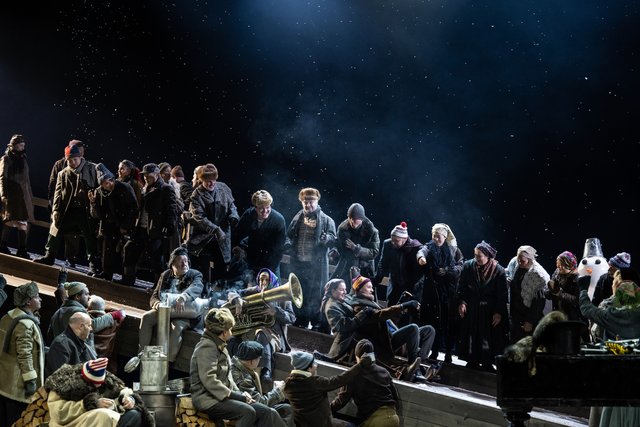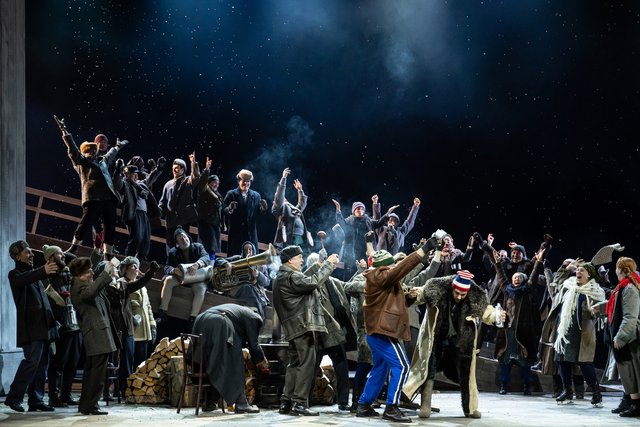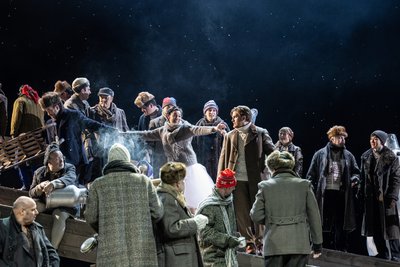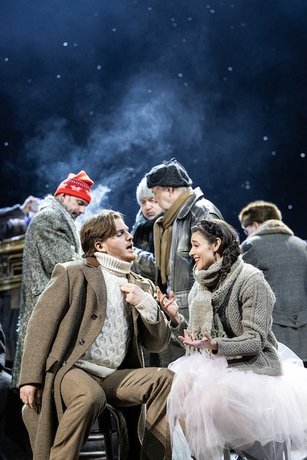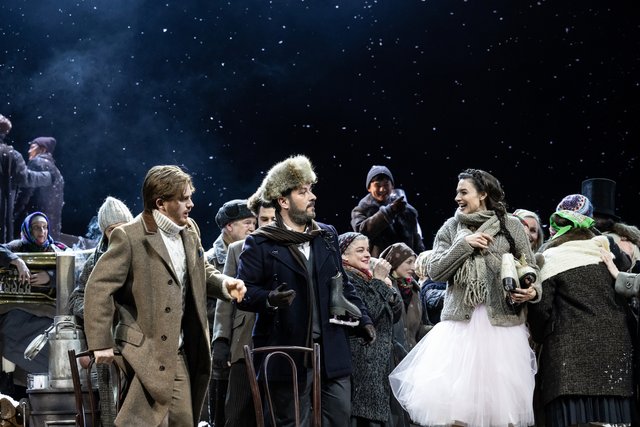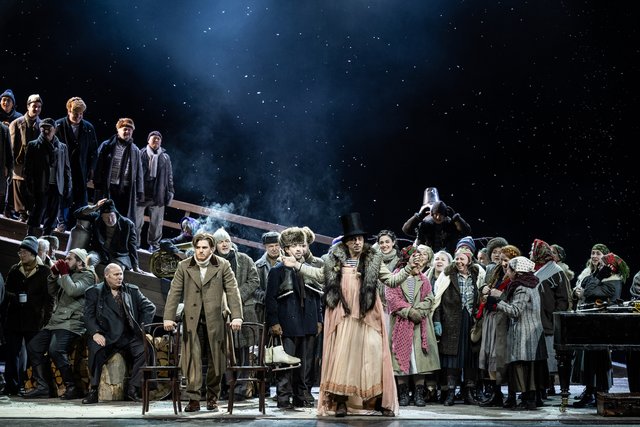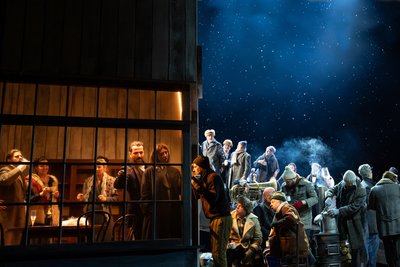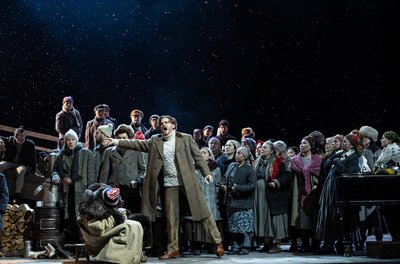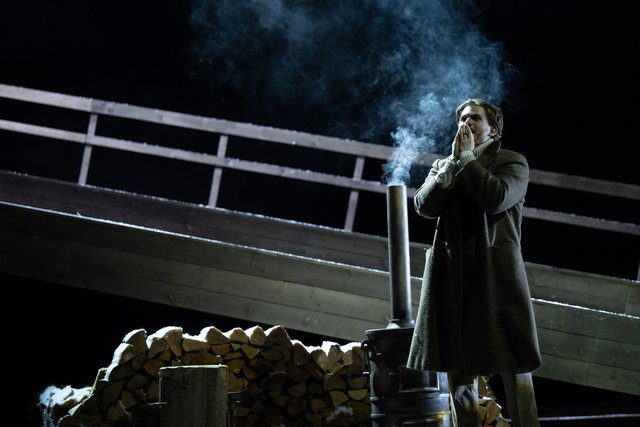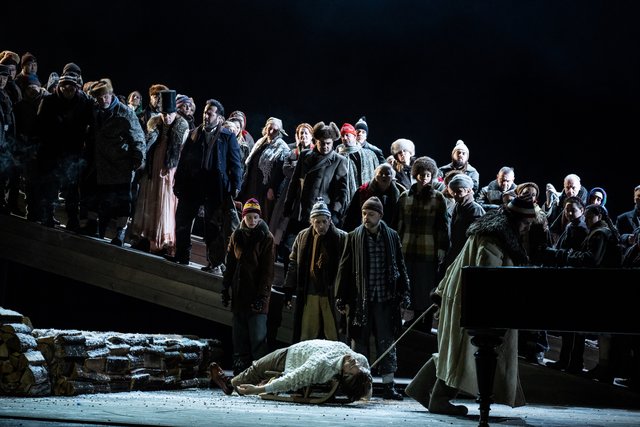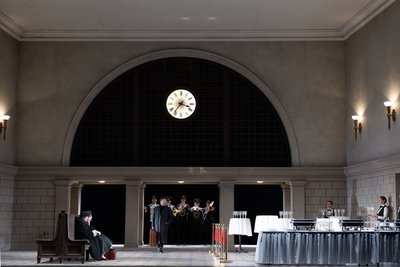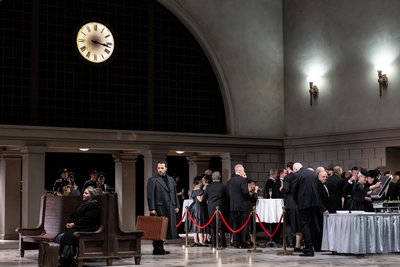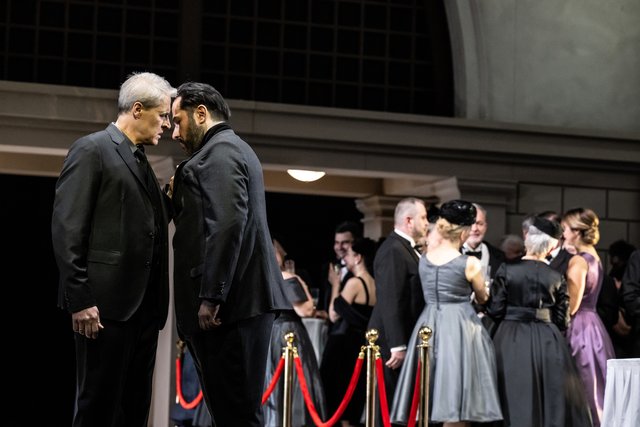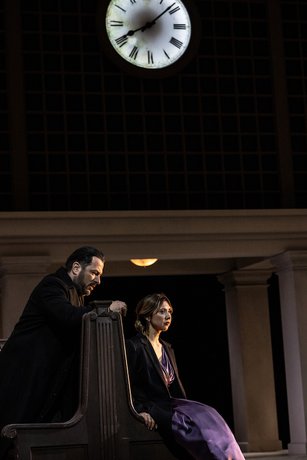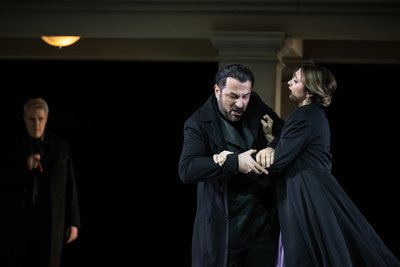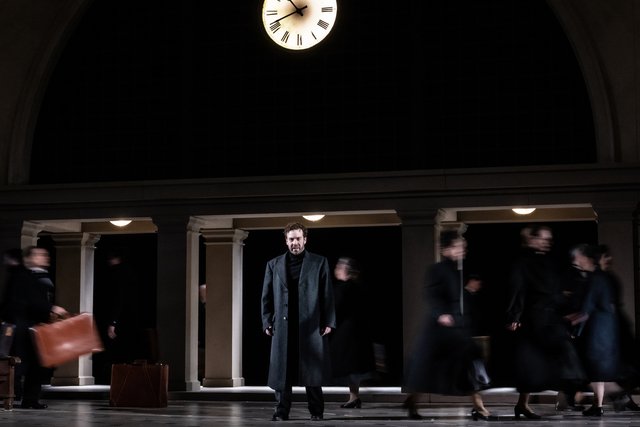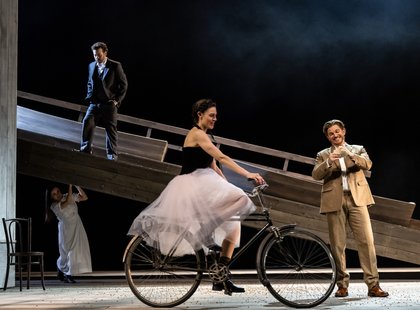Eugene Onegin (Ewgenij Onegin)
Pjotr I. Tschaikowskij (1840 – 1893)
Lyrical scenes in three acts after Alexander Pushkin
–in Russian with surtitles in Germand and English–
Conductor: Hermes Helfricht | Director: Vasily Barkhatov
3 hours 10 minutes one intermission after the 2nd actConvention, daily routine, force of habit – these are the ingredients of the uneventful life common to the people in Tchaikovsky’s EUGENE ONEGIN. Away from the city,
stuck in a rural scenario, the characters of the 1879 premiered opera are caught up in their daily routines. They relate only to each other — although the title character is at the middle point of their interlinked relationships.
Eugene Onegin, a young, aristocratic dandy, travels with his friend Lenski to the country to visit Lenski’s fiancée Olga. Whereas Olga is full of the joys of life and her mother Larina nostalgically reminisces about times past, Tatyana, Olga’s sister, takes refuge in the reading of books. In Onegin she sees the realization of her romantic dreams and she immediately falls in love with him – but her love remains unrequited. Onegin provokes Lenski by dancing wildly with his Olga whereby Lenski challenges his friend to a duel and winds up getting killed. Many years later, at a gathering of high society, Onegin, still is in search of self, meets Tatyana, who meanwhile has married Prince Gremin. Although Tatyana and Onegin admit to loving each other, Tatyana resolves to stay faithful to her husband. Onegin is left alone.
With the Lyric Scenes in Three Acts Tchaikovsky forgoes all that is heroic, all scenes of opulence. His interest lies in the small — and big— tragedies hidden behind the bourgeois façade, embedded in our daily lives, tragedies which inspired Tchaikovsky to compose one of the most significant works of Russian music history.
